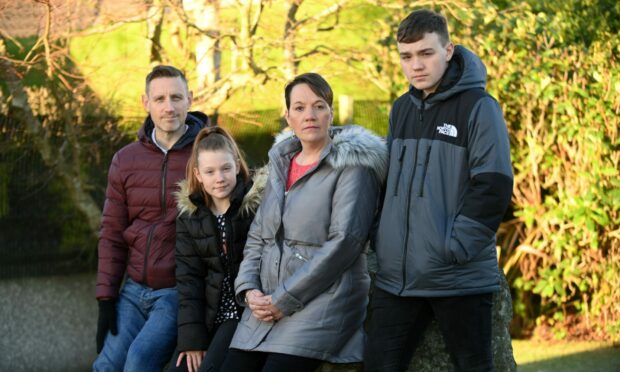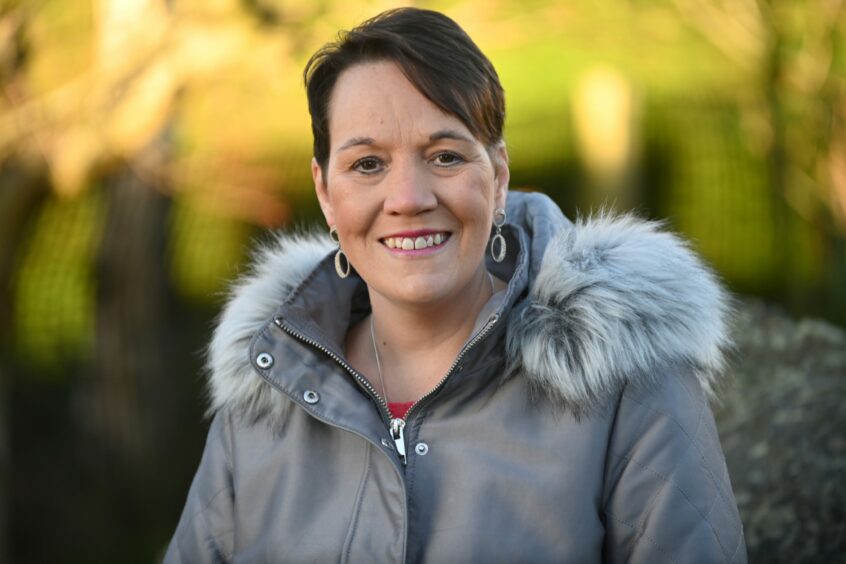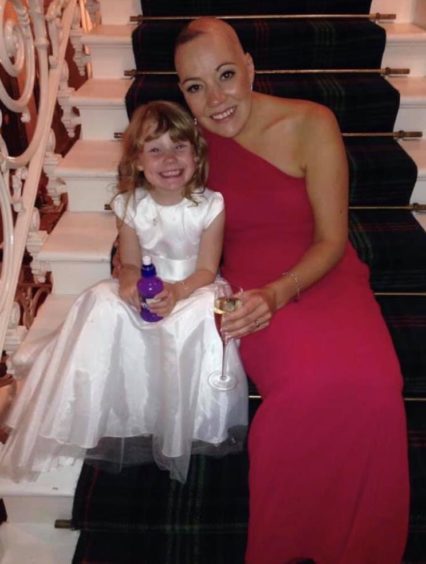When Stonehaven mum Suzanne Davies woke up in the night unable to breathe, she was unaware it was a sign of a brain tumour.
One day, while at work in 2014, the 44-year-old suddenly lost the ability to speak.
She also developed a headache and started struggling to move around as she would normally.
Her condition continued to deteriorate, and by the weekend she’d woke up a couple of times unable to breathe – likening the feeling to a panic attack.
Suzanne spoke to her GP on the Monday, who sent her to A&E, where medics found a mass the size of a golf ball on her brain.
It’s thought to have been growing for a year before she started showing symptoms.
‘I didn’t have a clue about brain tumours before I had one’
Suzanne diagnosed with Grade 4 Glioblastoma, one of the most aggressive types of brain tumour, with an average prognosis of 12-18 months.
But she’s outliving this by eight years and counting, as she continues to have treatment for her condition.
But it has left her with memory problems, seizures and occasional issues with her speech.
“It all happened so incredibly quickly as the symptoms came on so fast,” she said.
“Before I even could process it all, I was having the surgery to save my life.
“I didn’t have a clue about brain tumours before I had one.
“As soon as I was diagnosed, I told myself that I could do this and I could still be here for my family – and I am.”
What are the signs of a brain tumour?
Suzanne is backing The Brain Tumour Charity’s new campaign, Better Safe Than Tumour, urging people to spot the signs as early as possible.
The main symptoms of a brain tumour include:
- Headaches
- Changes in vision
- Nausea and dizziness
- Tiredness
- Loss of taste and smell
Dr David Jenkinson, The Brain Tumour Charity’s chief scientific officer, said: “With over 12,000 people now being diagnosed every year in the UK, and the impacts on diagnosis seen due to the pandemic, renewed action has never been more needed.
“It’s so important that we see greater awareness of the signs to ensure anyone affected can get the diagnosis, treatment and support they need at the earliest opportunity.”
More information about symptoms and support can be found on The Brain Tumour Charity’s website or by calling its helpline on 0808 800 0004.
Read more:
Deirdre’s shock after getting same brain tumour diagnosis as late niece



Conversation